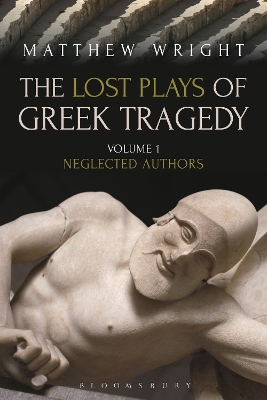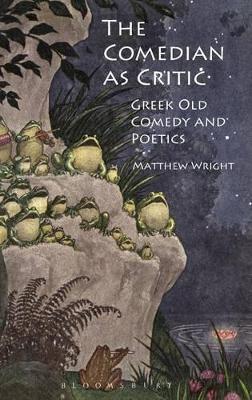Criminal Practice
2 total works
Numerous books have been written about Greek tragedy, but almost all of them are concerned with the 32 plays that still survive. This book, by contrast, concentrates on the plays that no longer exist. Hundreds of tragedies were performed in Athens and further afield during the classical period, and even though nearly all are lost, a certain amount is known about them through fragments and other types of evidence.
Matthew Wright offers an authoritative two-volume critical introduction and guide to the lost tragedies. This first volume examines the remains of works by playwrights such as Phrynichus, Agathon, Neophron, Critias, Astydamas, Chaeremon, and many others who have been forgotten or neglected. (Volume 2 explores the lost works of Aeschylus, Sophocles and Euripides.)
What types of evidence exist for lost tragedies, and how might we approach this evidence? How did these plays become lost or incompletely preserved? How can we explain why all tragedians except Aeschylus, Sophocles and Euripides became neglected or relegated to the status of 'minor' poets? What changes and continuities can be detected in tragedy after the fifth century BC? Can the study of lost works and neglected authors change our views of Greek tragedy as a genre? This book answers such questions through a detailed study of the fragments in their historical and literary context. Including English versions of previously untranslated fragments as well as in-depth discussion of their significance, The Lost Plays of Greek Tragedy makes these works accessible for the first time.
Matthew Wright offers an authoritative two-volume critical introduction and guide to the lost tragedies. This first volume examines the remains of works by playwrights such as Phrynichus, Agathon, Neophron, Critias, Astydamas, Chaeremon, and many others who have been forgotten or neglected. (Volume 2 explores the lost works of Aeschylus, Sophocles and Euripides.)
What types of evidence exist for lost tragedies, and how might we approach this evidence? How did these plays become lost or incompletely preserved? How can we explain why all tragedians except Aeschylus, Sophocles and Euripides became neglected or relegated to the status of 'minor' poets? What changes and continuities can be detected in tragedy after the fifth century BC? Can the study of lost works and neglected authors change our views of Greek tragedy as a genre? This book answers such questions through a detailed study of the fragments in their historical and literary context. Including English versions of previously untranslated fragments as well as in-depth discussion of their significance, The Lost Plays of Greek Tragedy makes these works accessible for the first time.
Some of the best evidence for the early development of literary criticism before Plato and Aristotle comes from Athenian Old Comedy. Playwrights such as Eupolis, Cratinus, Aristophanes and others wrote numerous comedies on literary themes, commented on their own poetry and that of their rivals, and played around with ideas and theories from the contemporary intellectual scene. How can we make use of the evidence of comedy? Why were the comic poets so preoccupied with questions of poetics? What criteria emerge from comedy for the evaluation of literature? What do the ancient comedians' jokes say about their own literary tastes and those of their audience? How do different types of readers in antiquity evaluate texts, and what are the similarities and differences between 'popular' and 'professional' literary criticism? Does Greek comedy have anything serious to say about the authors and texts it criticizes? How can the comedians be related to the later literary-critical tradition represented by Plato, Aristotle and subsequent writers? This book attempts to answer these questions by examining comedy in its social and intellectual context, and by using approaches from modern literary theory to cast light on the ancient material.

